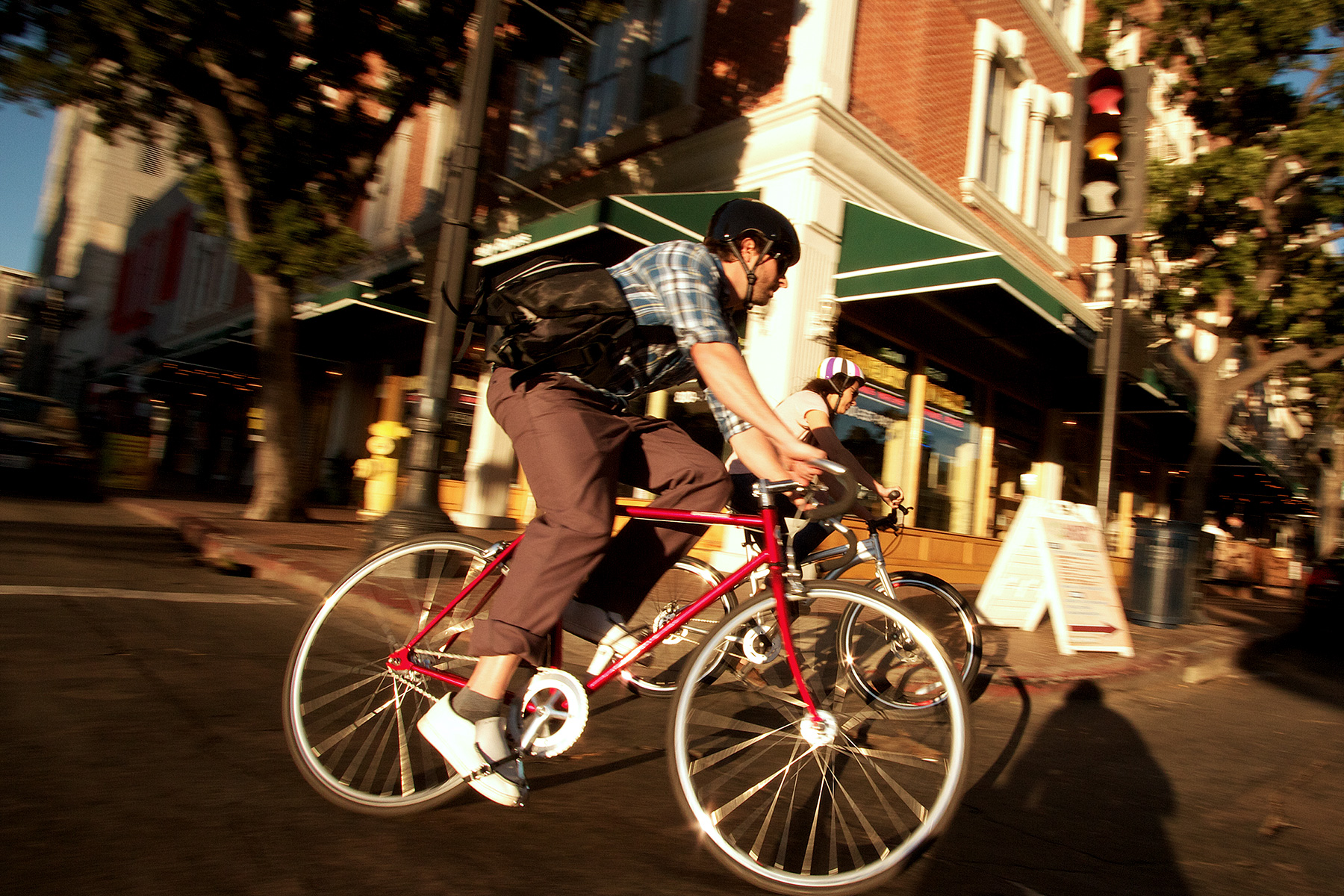Professor Wesley Marshall Investigates Scofflaw Biking
By Daniel E DAngelo Esq on July 20, 2015
Scofflaw (noun) – a person who flouts the law, especially by failing to comply with a law that is difficult to enforce effectively.
Sometimes it seems like two opposite sides at odds with each other, motorists and cyclists, often frustrated by the behavior of the other group. The vocal minorities from each group make it hard to believe the two groups can exist in harmony – but this is far from the truth.
Part of the “Us vs. Them” attitude between cyclists and motorists may have arisen from scofflaw biking; where cyclists may do things like run red lights or stop signs or cut across multiple lanes when there is no traffic. While this type of riding may make bicyclists seem like hooligans, the opposite is often the case, and is likely born out of convenience. Just like when motorists roll through a stop sign or speed through a yellow or red light.
Wesley Marshall, PhD, PE, an assistant professor of Civil Engineering and affiliate professor in Urban and Regional Planning at the University of Colorado, had this to say about scofflaw biking:
“Not all bicyclists that break the law are these hooligans that are out to be sort of anti-society. I think a lot of people do it for very practical reasons. ”
For example, a cyclist may run a red light with no traffic coming in order to establish themselves in a lane and prevent being mistakenly run off the road by a vehicle weighing thousands of pounds.
Marshall continues, “People speed on the way to work. And even if it’s a few miles over, they are speeding; they are breaking the law. But society doesn’t judges those people as criminals. With bicyclists, a lot of people feel the same way. They don’t really think it’s a big deal to go through a stop sign when there are no other cars or pedestrians around.”
Marshall makes a solid case, and he’s got a survey of over 18,000 cyclists that seeks to understand the reasoning and rationale behind scofflaw biking. Check here often as the results should be posted soon. It should provide some interesting results.
Understanding scofflaw biking is essential to cutting down on fatalities and hostile interactions between bicyclists and cars on Colorado roadways, but it’s important to understand that these practices are unacceptable in nearly any situation. The bottom line for bicycle safety and earning respect from motorists is that bicyclists must follow the laws and rules of the road exactly. This is not a higher standard for bicyclists, as the same holds true for motorists. However, it’s important to remember that a cyclist is at a serious disadvantage when it comes to car collisions, so vigilance is crucial. Bicyclists must also remember that flouting the law unnecessarily subjects themselves to great bodily injury and would probably be a complete bar of any legal recourse, i.e. no monetary recovery would be available to the bicyclist, if hurt in a collision with a vehicle.
When you’re on your bicycle, safety should be your primary focus. By observing safe practices and closely adhering to Colorado Bicycle Laws, you are taking the necessary steps to protect yourself. Even when you’re taking precautions and following all the laws there is a risk of a collision that isn’t your fault. Following the laws and basic safety guidelines will help ensure your legal rights are protected if such an unfortunate event should happen to you.
Individuals who are injured by another party deserve to be compensated accordingly. It can be difficult to put an exact value on such a life-altering event, but at D’Angelo Law we work diligently to hold the responsible party and their insurance accountable. Cycling is a fun way to get up, get moving, get some exercise, and is an efficient and effective mode of transportation. Don’t let a lack of attention or failure to observe bicycle laws ruin a perfect day of riding! When we’re able to easily demonstrate that our client was in total adherence with Colorado bike laws, it makes the case that much stronger.
Dan often commutes to the office on his bike and has learned a few tips along the way.
“One of the biggest trouble spots I see in Denver is the use of crosswalks by bicyclists as a bike lane. Remember that unless designated, a crosswalk at an intersection is not a bike lane. Cars expect to see a pedestrian but not a faster moving bike. An unexpected and fast moving bike can surprise a car especially when one or the other is turning.”
“Follow the traffic laws just as you would when driving a car and make eye contact with motorists.”


